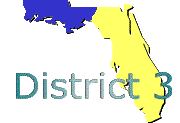| 2.0 | PUBLIC TRANSPORTATION MANAGEMENT |
| 2.1 | PUBLIC TRANSPORTATION MANAGEMENT |
| 2.1.0 | ITS shall include a Public Transportation Management (PTM) function. |
| 2.1.1 | PTM shall include an Operation of Vehicles and Facilities (OVF) function that provides computer assisted control of the operation of vehicles and their associated facilities. |
| 2.1.1.1 | To enable the automation of the vehicle and facilities operations OVF shall provide the capability to gather the needed data to include, but not be limited to, the following: |
| 2.1.1.1(a) | Vehicle passenger loading by bus stop and trip segment. |
| 2.1.1.1(b) | Bus running times between time points. |
| 2.1.1.1(e) | Mileage accumulated by individual buses. |
| 2.1.1.2 | OVF shall include a Command and Control (CC) capability. |
| 2.1.1.2.1 | CC shall provide the capability for real-time Vehicle Command and Control (VCC). |
| 2.1.1.2.1.1 | VCC shall provide the capability to compare received information with predetermined operating condition specifications and note any deviations. |
| 2.1.1.2.4 | CC shall include the capability for its computational capabilities to be located either on-vehicle and/or at remote locations. |
| 2.1.2 | PTM shall include a Planning and Scheduling Services (PSS) function to automate the planning and scheduling of public transit operations. |
| 2.1.2.1 | The PSS shall include a Planning capability. |
| 2.1.2.1.1 | PSS Planning shall be performed off-line from stored data that were collected in real-time. |
| 2.1.2.1.2 | PSS Planning shall include processing of the data in a manner that will permit improvements in routes and services. |
| 2.1.2.2 | The PSS shall include a Schedule Generation capability. |
| 2.1.2.2.1 | The PSS Schedule Generation function shall collect that data needed for schedule generation including, but not limited to, the following: |
| 2.1.2.2.1(c) | Revenue information. |
| 2.1.2.2.2 | The PSS Schedule Generation function shall use the collected data in the automatic or semiautomatic development of transportation system schedules. |
| 2.1.2.2.3 | The PSS Schedule Generation function shall provide the capability to print schedules. |
| 2.1.2.2.4 | The PSS Schedule Generation function shall provide the capability to disseminate schedules to, but not be limited to, the following: |
| 2.1.2.2.4(a) | Kiosks. |
| 2.1.2.2.4(b) | Transportation Management Centers. |
| 2.1.2.2.5 | The PSS Schedule Generation function shall provide the capability to automatically update the customer service operator system with the most current schedule and schedule adherence information. |
| 2.1.3 | PTM shall include a Personnel Management (PM) function to facilitate the management of both driver and maintenance personnel. |
| 2.1.3.2 | PM shall include a Driver Personnel Management (DPM) function. |
| 2.1.3.2.3 | In generating fair driver assignments DPM shall include factors relating to drivers preferences and qualifications to include, but not be limited to, the following: |
| 2.1.3.2.3(b) | Driver schedule preference. |
| 2.2.0 | ITS shall include an En-Route Transit Information (TI) function. En-Route Transit Information provides travelers with real-time transit and high-occupancy vehicle information allowing travel alternatives to be chosen once the traveler is en-route. It consists of three major functions which are (1) Information Distribution, (2) Information Receipt, and (3) Information Processing. This capability integrates information from different transit modes and presents it to travelers for decision making. |
| 2.2.1 | TI shall include an information distribution function that disseminates information to travelers. |
| 2.2.1.1 | Information Distribution shall include an information network capability. |
| 2.2.1.1.4 | The Information Network shall provide all users with information that is from a single source in order to ensure consistency across all users. |
| 2.3.0 | ITS shall include a Personalized Public Transit (PPT) function. |
| 2.3.2 | The PPT shall include a Vehicle Assignment function. |
| 2.3.2.2 | For Random Route operations Vehicle Assignment shall assign trip origin and destination. |
| 2.3.2.3 | For Flexibly Routed operations Vehicle Assignment shall control how fixed route buses are detoured. |
| 2.3.4 | The PPT shall include an Information Processing function. |
| | |




